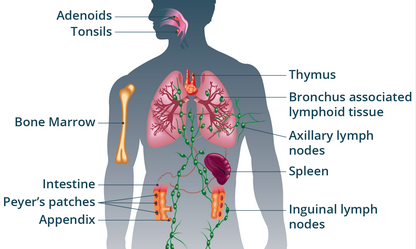Weight:
How the gut microbiome affects your weight
Have you ever questioned why weight loss seems effortless for some, yet remains a struggle for others despite their best efforts? The key might be concealed within your digestive system. At myFloraScan, we aim to help you comprehend this link and elevate your health to unprecedented heights with our gut microbiome test.

In a nutshell: The gut microbiome & your weight
The human intestine extends more than 8 meters and is teeming with over 39 trillion microorganisms. A balanced gut microbiome is essential for our health, significantly contributing to the digestion of food, nutrient absorption, and the regulation of metabolism. Disruptions in this microbial community can be linked to weight issues and metabolic diseases.
BMI - What is "too much"?
To start, we need to identify what qualifies as excessive weight. The standard we use for this is the body mass index (BMI). BMI is determined by the ratio of a person’s weight to their height and is expressed in kg/m². You can calculate your BMI easily. For example, if you weigh 70 kg (around 11 stone) and your height is 1.65 meters (around 5 foot 7 inches), the calculation would be: 70 ÷ (1.65 x 1.65) = 25.7 kg/m². A BMI between 18.5 and 25 kg/m² is considered to be within the normal range. Numbers lower than this suggest underweight, while higher numbers suggest overweight. A BMI exceeding 30 kg/m² is classified as obesity.
The gut microbiome and your weight
The concept of weight management is straightforward: consuming more calories than you burn results in storing the surplus as fat. On the other hand, when you eat less, your body uses its fat stores for energy. Thus, maintaining a nutritious diet and staying active are crucial.
Maintaining a healthy diet by steering clear of high-calorie, unhealthy foods, coupled with increased physical activity, supports achieving a normal weight. However, weight management is influenced by more than just calorie balance. The factors at play are quite intricate, including individual metabolism, hormonal levels, genetic tendencies, mental well-being, and medication use. Additionally, an often-overlooked aspect is the gut bacteria. Each person has a distinct microbiome, with a unique mix of intestinal bacteria that also contributes to body weight.

The microbiome is crucial for maintaining health and is linked to the onset of several diseases, such as diabetes, irritable bowel syndrome, and atherosclerosis. The diverse bacteria in the gut display varying actions: some contribute positively to health, while others can be detrimental. This phenomenon is also evident in cases of overweight and obesity, where certain bacteria seem to encourage weight gain, whereas others appear to offer protection against it.
Are there bacteria that make us fat?
Numerous research studies have demonstrated that the gut microbiome of overweight individuals is markedly different from that of those with a normal weight. People carrying extra weight typically exhibit a microbiome with less variety and fewer bacterial species. A rich diversity of bacteria is a hallmark of a healthy gut, which has a substantial impact on various health conditions. Moreover, higher levels of certain bacterial species, including Actinobacter, Actinomyces, Lactobacillus, and Eubacterium, have been found in those who are overweight. This indicates that these bacteria might play an important role in obesity’s onset. Nonetheless, it is still uncertain whether the altered microbiome leads to obesity or if obesity changes the microbiome. What is clear, however, is that individuals with a “microbiome linked to being overweight” are more prone to weight gain and may find it more challenging to shed pounds.
Further effects on the body
The collection of microorganisms in our body not only impacts metabolism but also plays a role in many other bodily functions. The specific microbiome patterns linked to weight gain can cause inflammation, overstimulate the immune system, and reduce sugar tolerance, leading to conditions such as diabetes, fatty liver, high blood pressure, atherosclerosis, and heart disease. This connection indicates that obesity and its related illnesses are closely tied to the gut’s microbial community. Therefore, maintaining a healthy gut microbiome is essential for managing weight and promoting overall health. Along with a diet that supports gut health, regular physical activity and effective stress management are also important.
The right diet for your feel-good weight
A nutritious diet is essential for maintaining a healthy gut and promoting weight loss. It should include plenty of fiber from whole grains, beans, vegetables, and fruits, along with healthy fats and adequate protein.
Fiber is crucial for maintaining a healthy microbiome. When altering your diet, give your digestive system time to adjust to support a balanced microbiome. Our recipe e-book, “Microbiome Food,” offers 40 tasty recipes that enhance gut health and provides extensive information on the microbiome and dietary choices that encourage bacterial diversity in your gut.

Given the critical importance of nutrition, the myBioma gut microbiome analysis offers more than just an understanding of the microbial makeup of your digestive system. It also provides customized dietary advice tailored to the unique requirements of your gut microbiome. This enables you to take specific actions to enhance the balance of your gut microbiome while also working towards your weight management goals.
Discover your microbiome with our test
Using our test, you can enhance your well-being and overall quality of life in a sustainable way. The test identifies the bacteria present in your gut and their specific roles. Based on your results, you will receive customized advice to support your microbiome through dietary and lifestyle changes.
Blog articles on the topic of the gut microbiome & immune system
If you would like to find out more about the gut microbiome and the immune system, we can recommend our blog where you will find lots of interesting articles on the subject.
Your microbiome also has an effect on this

Lorem ipsum dolor sit amet, consectetur adipiscing elit. Ut elit tellus, luctus nec ullamcorper mattis, pulvinar dapibus leo.






